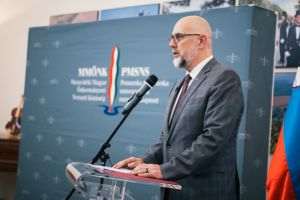Careful research can bring to light interesting data, including from the area of... the kitchen. An unprecedented research regarding the rural diet of the past, according to ethnographic and linguistic documents, will be carried out by 12 researchers from the Cluj branch of the Romanian Academy and from the "Sextil Puşcariu" Institute of Linguistics and Literary History. According to the Cluj branch of the Romanian Academy: "The project will be implemented between January 1, 2024 and December 31, 2025, by a team of 12 researchers, who will approach the subject of food from the theoretical-methodological perspectives of various fields: ethnology, dialectology, lexicography, gastronomy molecular, biotechnology and food engineering, nutrition and dietetics". According to the cited source, carried out in a multidisciplinary and inter-institutional formula unprecedented in the Romanian academic landscape, the project's main objectives are to make accessible, through a web platform, the information about rural food existing in the interwar documentary funds managed by the Institute of Linguistics and History Literary "Sextil Puşcariu" and the Institute "Folklore Archive of the Romanian Academy"; the experimental development of ten food products in the pilot stations of the Faculty of Food Science and Technology of the University of Agricultural Sciences and Veterinary Medicine in Cluj-Napoca, based on the traditional recipes identified in the researched manuscripts; increasing the awareness of communities regarding the importance of food heritage in defining their cultural identity, but also regarding the possibility of using it as a resource for the development of entrepreneurship, agritourism and rural tourism.
Cosmina Timoce-Mocanu, from the Institute of Linguistics and Literary History "Sextil Puşcariu" spoke about this research: "In my opinion, there are two aspects that make the ADELIS project singular in the current research landscape. First of all, it brings to light documents with novelties about the food practices of the past, produced both through the efforts of the first generation of linguists and folklorists of academic Cluj and of a significant number of people from the villages of interwar Romania, who gladly assumed the role of communicating information about the language and traditions of their own community, at a time when, in the history of these disciplines and in our regional history, everything had to be done. What is new is the fact that the valorization of these almost nine decades old documents is thought above all for the benefit of the rural communities to whom we owe the transmission of this heritage, to refresh their memory and teach them to look at this heritage as a resource for development". At the same time, she mentioned that it is a special note that this project is implemented by a team of researchers who look at the topic of nutrition through the lens of different disciplines. According to the researchers, it is for the first time that two research structures with a humanistic profile of the Cluj-Napoca Branch of the Romanian Academy are positioning themselves as institutional partners capable of transferring knowledge towards the field of applied research and innovation, the creation of food products and education programs that respond to current societal challenges.

























































